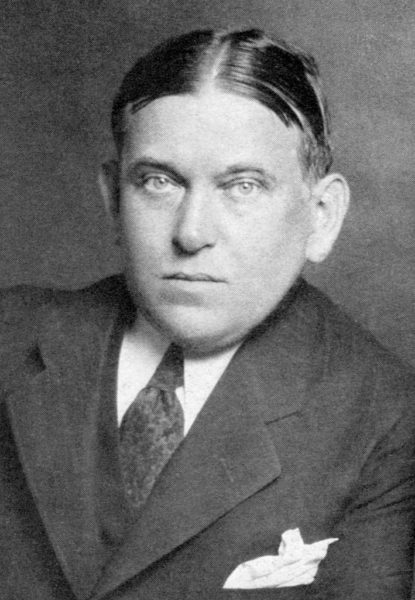Overly Sarcastic Productions
Published 25 Dec 2017Merry Christmas, all! In honor of this complex and multifaceted holiday, today let’s talk about some of the many and varied influences and major historical turning points that sculpted this holiday into what we know and love (or lose our minds at Starbucks over.)
Nobody tell Blue that this video is mostly historical.
PATREON: https://www.patreon.com/user?u=4664797
Find us on Twitter @OSPYouTube!
December 24, 2019
Holiday Tales: Christmas
December 11, 2019
QotD: Charles I and the Civil War
With the ascension of Charles I to the throne we come at last to the Central Period of English History (not to be confused with the Middle Ages, of course), consisting in the utterly memorable Struggle between the Cavaliers (Wrong but Wromantic) and the Roundheads (Right and Repulsive).
Charles I was a Cavalier King and therefore had a small pointed beard, long flowing curls, a large, flat, flowing hat, and gay attire. The Roundheads, on the other hand, were clean-shaven and wore tall, conical hats, white ties, and sombre garments. Under these circumstances a Civil War was inevitable.
The Roundheads, of course, were so called because Cromwell had all their heads made perfectly round, in order that they should present a uniform appearance when drawn up in line.
Besides this, if any man lost his head in action, it could be used as a cannon-ball by the artillery (which was done at the Siege of Worcester).
For a long time before the Civil War, however, Charles had been quarrelling with the Roundheads about what was right. Charles explained that there was a doctrine called the Divine Right of Kings, which said that:
(a) He was King, and that was right.
(b) Kings were divine, and that was right.
(c) Kings were right, and that was right.
(d) Everything was all right.
But so determined were the Roundheads that all this was all wrong that they drew up a Petition called the Petition of Right to show in more detail which things were wrong. This Petition said:
(a) That it was wrong for anyone to be put to death more than once for the same offence.
(b) Habeas Corpus, which meant that it was wrong if people were put in prison except for some reason, and that people who had been mutilated by the King, such as Prynne, who had often had his ears cut off, should always be allowed to keep their bodies.
(c) That Charles’s memorable methods of getting money, such as Rummage and Scroungeage, were wrong. But the most important cause of the Civil War was Ship Money
Charles I said that any money which was Ship Money belonged to him; but while the Roundheads declared that Ship Money could be found only in the Cinq Ports, Charles maintained that no one but the King could guess right which was Ship Money and which wasn’t. This was, of course, part of his Divine Right. The climax came when a villager called Hampden (memorable for his dauntless breast) advised the King to divine again. This so upset Charles that he went back to Westminster, and after cinquing several ports burst into the House of Commons and asked in a very royal way for some birds which he said were in there. The Parliament, who were mostly Puritans, were so shocked that they began making solemn Leagues and Countenances. Charles therefore became very angry and complaining that the birds had flown raised his standard at Nottingham and declared war against Hampden and the Roundheads.
The War
At first the King was successful owing to Prince Rupert of Hentzau, his famous cavalry leader, who was very dashing in all directions. After this, many indecisive battles were fought at such places as Newbury, Edgehill, Newbury, Chalgrove Field, Newbury, etc., in all of which the Cavaliers were rather victorious.
The Roundheads therefore made a new plan in order to win the war after all. This was called the SelfDenying Ordnance and said that everyone had to deny everything he had done up to that date, and that nobody was allowed to admit who he was: thus the war could be started again from the beginning. When the Roundheads had done this they were called the New Moral Army and were dressed up as Ironclads and put under the command of Oliver Cromwell, whose Christian name was Oliver and who was therefore affectionately known as `Old Nick’. Cromwell was not only moral and completely round in the head but had a large (round) wart on the nose. He was consequently victorious in all the remaining battles such as Newbury, Marston Moor, Edgehill (change for Chalgrove), Naseby, Newbury, etc.
Blood and Ironclads
When Charles I had been defeated he was brought to trial by the Rump Parliament so-called because it had been sitting for such a long time and was found guilty of being defeated in a war against himself, which was, of course, a form of High Treason. He was therefore ordered by Cromwell to go and have his head cut off (it was, the Roundheads pointed out, the wrong shape, anyway). So romantic was Charles, however, that this made little difference to him and it is very memorable that he walked and talked Half an hour after his Head was cut off.
On seeing this, Cromwell was so angry that he picked up the mace (the new and terrible Instrument of Government which he had invented) and, pointing it at the Head, shouted: “Take away that Marble,” and announced that his policy in future would be just Blood and Ironclads.
W.C. Sellar & R.J. Yeatman, 1066 And All That, 1930.
December 5, 2019
QotD: [Literal] Health Nazis
[T]he Nazis’ focus on the threats that risky habits pose to “public health” makes perfect sense in light of their collectivist ideology. “Brother national socialist,” said one bit of Nazi propaganda, “do you know that your Führer is against smoking and thinks that every German is responsible to the whole people for all his deeds and missions, and does not have the right to damage his body with drugs?”
Smith adds: “Clearly there were considerable links between the promotion of particular lifestyles and the racial hygiene movement. Tobacco and alcohol were seen as ‘genetic poisons,’ leading to degeneration of the German people.”
The point, I hasten to add, is not that today’s “public health” paternalists are Nazis. I am not suggesting that everyone who hates smoking is just like Hitler. But there is an unmistakable totalitarian logic to the notion that the government has a responsibility to promote “public health” by preventing us from engaging in activities that might lead to disease or injury. The implication is that we all have a duty to the collective to be as healthy as we can be, an idea the Nazis embraced but one that Americans ought to find troubling.
Jacob Sullum, “So What If Hitler Was an Anti-Smoker?”, Reason Hit and Run, 2004-12-17.
November 26, 2019
November 21, 2019
QotD: Honour
Lately I’ve been thinking about honor. Maybe because I spent the last couple of months mulling over the musketeers. Maybe because I’ve gone back to a regency-reading jag as I work on things as far from regency as possible.
Honor has got a bad rep lately. It’s been dragged through the mud, and its garments are draggled. Association of its names with such egregious ideas as “honor killings” has done it no good.
It’s particularly unjust since honor killings are more shame-killings. I grew up in a culture that still shows a lot of Arab influence, (well, they were there almost as long as the Romans, you know?) and I almost understand honor killings – if I squint and look sideways. I was, after all, raised in a village (so like Miss Marple I’ve seen all there is to see of human wickedness.) Of course Portuguese – at least civilized ones – don’t honor-kill their daughters. But we had a case in the village where a father shaved his daughter’s head because she was talking to a strange boy. And even with my family’s rather odd behavior, since we were all readers and a fair number of us engaged in creative work, I came across that “how could you talk to him when you were alone in the house? What will people think? You have shamed us all.” I came across it more than once, because I have trouble wrapping my mind across the nonsensical. And to me – particularly when this started, when I was about eight – seeing a little friend who happened to be a boy was no different from seeing a little friend who happened to be a girl.
But the overwrought minds of village spinsters and old women looked at this the way “enlightened” militant “feminists” do. Like the one who accused my nine year old of sexual harassment for touching a girl’s behind while trying to get her attention. (He didn’t fondle her. He reached through a crowd and poked her, to ask if she wanted to play a space exploration game.) If you’re a male you have lust and evil on your mind, and any woman allowing you near has lost her virtue. (They must live MUCH more interesting lives than I do.)
Anyway, honor viewed that way is more what the public thinks of you and what you allow the public to know. You can lose your honor through all sorts of stupid things that have nothing to do with what is in your heart and mind. You can be “disgraced” the way a regency maiden was disgraced because she tripped in public and fell across a gentleman, and didn’t immediately faint or whatever. (Well, at least in regency romances. I believe true society had more leniency. I mean, even in the village, even with my eccentric behavior and the fact I wore shorts outside the house – oh, the humanity! – only half the people considered me a slut.)
Sarah Hoyt, “An Affair of Honor a blast from the past from April 24 2012”, According to Hoyt, 2017-10-11.
November 18, 2019
QotD: H.L. Mencken on “moral crusades”
The loud, preposterous moral crusades that so endlessly rock the republic – against the rum demon, against Sunday baseball, against Sunday moving-pictures, against dancing, against fornication, against the cigarette, against all things sinful and charming – these astounding Methodist jehads offer fat clinical material to the student of mobocracy. In the long run, nearly all of them must succeed, for the mob is eternally virtuous, and the only thing necessary to get it in favor of some new and super-oppressive law is to convince it that that law will be distasteful to the minority that it envies and hates.H.L. Mencken, “Moral Indignation”, Damn! A book of calumny, 1918.
November 12, 2019
QotD: The crimes of the Righteous
There was no mercy in them, not even those specks of humanity that can occasionally be glimpsed in the most heartless of souls. Priests, judge, scribe, and torturers acted with such rigorous coldness and distance that that was precisely what evoked the most horror. Even more blood-curdling that the suffering they were capable of inflicting was the icy determination of those know they are backed by divine and human laws and who at no moment doubt the righteousness of what they are doing.
Later, with time, I learned that although all men are capable of good and evil, the worst among them are those who, when they commit evil, do so by shielding themselves in the authority of others, in their subordination, or in the excuse of following orders. And even worse are those who believe they are justified by their God. Because in the secret dungeons of Toledo, nearly at the cost of my life, I learned that there is nothing more despicable or more dangerous than the malevolent individual who goes to sleep every night with a clear conscience. That is true evil. Especially when paired with ignorance, superstition, stupidity, or power, all of which often travel together.
And worst of all is the person who acts as exegete of The Word — whether it be from the Talmud, the Bible, the Koran, or any other book already written or yet to come. I am not fond of giving advice — no one can pound opinions into another’s head — but here is a piece that costs you nothing: Never trust a man who reads only one book.
Arturo Pérez-Reverte, Purity of Blood, 1997.
October 30, 2019
In case it wasn’t already obvious – “Extinction Rebellion isn’t about the climate”
One of the self-described founders of Extinction Rebellion takes to Medium to explain what the organization’s real goals are:
I’ve been with Extinction Rebellion (XR) from the start. I was one of the 15 people in April 2018 who came together and made the collective decision to try to create the conditions that would initiate a rebellion. I was a coordinator of one of the original five working groups, and I’ve been organising with XR day-and-night since then (frugally living off my savings so I don’t have to work, having quit an industry that paid me £1000/week). And I’ve been in RisingUp (the organisation from which XR has emerged) since the first RisingUp action in November 2016. I’m a RisingUp Holding Group member, and a member of the XR Guardianship Team.
And for the sake of transparency: that previous paragraph is all about me “pulling rank” — I’m trying to convince you to listen to what I have to say …
And I’m here to say that XR isn’t about the climate. You see, the climate’s breakdown is a symptom of a toxic system of that has infected the ways we relate to each other as humans and to all life. This was exacerbated when European “civilisation” was spread around the globe through cruelty and violence (especially) over the last 600 years of colonialism, although the roots of the infections go much further back.
[…]
So Extinction Rebellion isn’t about the climate. It’s not even about “climate justice”, although that is also important. If we only talk about the climate, we’re missing the deeper problems plaguing our culture. And if we don’t excise the cause of the infection, we can never hope to heal from it.
This article is calling to all of those who are involved in XR who sometimes slip into saying it’s a climate movement. It’s a call to the American rebels who made a banner saying “CLIMATE extinction rebellion”. It’s a call to the XR Media & Messaging teams to never get sloppy with the messaging and “reduce” it to climate issues. It’s a call to the XR community to never say we’re a climate movement. Because we’re not. We’re a Rebellion. And we’re rebelling to highlight and heal from the insanity that is leading to our extinction. Now tell the truth and act like it.
October 3, 2019
The Puritans, then and now
Severian thinks on churchiness and churchianity in our times:
The most striking fact about the Middle Ages from a modern perspective is their love of lists, categories, forms. This is partly practical — Church art all looks the same because it has to communicate a consistent message to the aforesaid illiterate peasantry — but lots of it isn’t. They were simply obsessed with forms, with outward order, to the point that even the few true individuals were hard to tell apart — William of Ockham and Thomas Aquinas were as different as two thinkers could possibly be, but unless you’re a subject matter expert, their writings look identical.
“The Crucible” by Len Radin is licensed under CC BY-NC-SA 2.0
“Individuality,” on the other hand, comes from inward experience. What, if anything, did the medieval peasant believe when he went to Mass? Impossible to say, but one of the reasons that’s so is because the form of his “piety” was so all-encompassing. Some years back, a Jew wrote a funny book about trying to live his life by the letter of the Mosaic law. One could do the same thing with medieval Catholicism. Take a gander at the liturgical year — hardly a day goes by without a feast, a commemoration, a celebration. Do all of that, and you’ll hardly have time for anything else. They were so focused on the outward show, at least in part, because there was so much showing to do.
When the Reformation shitcanned all that, piety turned inward. There are zillions of sources for what the Reformed believed (or, at least, said they believed), because the Reformation was a middle-class pursuit and the middle classes were literate … and, crucially, had the free time to be literate. I’m guessing here, but since people are people and always have been, I’m pretty sure that your medieval peasant loved the show of his religion, because it gave him a little much-needed time off from his hourly grind of back-breaking, ragged-edge-of-survival physical labor.
Your middle-class incipient Calvinist, on the other hand, was bored to tears with stuff like “creeping to the cross” — all those billable hours lost (surely no one is surprised that Calvin, Knox, et al were all lawyers or merchants). In their vanity, they insisted it wasn’t enough to seem pious; you actually had to be pious, which meant putting the time you would’ve spent doing public penance into contemplating the state of your soul. Check out The New England Mind — once you fight through prose, you’ll see that the vaunted Puritan piety was little more than Special Snowflakism with a New Testament twist. They’re “individuals,” all right, but only because they’re as obsessed as Tumblrinas with their very own pwecious widdle selves.
The point of this isn’t just to bash Puritans, fun as that is (and as richly as they deserve it). The point is that, as Current Year America is a thoroughly Puritan nation, we have to realize just how historically contingent Puritanism really is in order to beat them.
Puritans desperately wanted to be individuals in a world that couldn’t support very many individuals. You need a lot of free time to be a Puritan, and in the 16th century free time was almost inconceivably expensive. Whatever else it was, Puritanism was gross conspicuous consumption — Puritans announced to the world that they alone had the free time to indulge in expensive educations, books, Bible study, and the endless hours worrying about whether or not it’s Biblically justified to paint the altar. In a world where most everyone still knows someone who knows someone who starved to death, that’s one hell of a statement.
November 9, 2018
QotD: Puritanism
Next to enjoying ourselves, the next greatest pleasure consists in preventing others from enjoying themselves, or, more generally, in the acquisition of power.
Bertrand Russell, “Recrudescence of Puritanism”, 1928.
June 15, 2016
QotD: American secular puritanism
If there is one mental vice, indeed, which sets off the American people from all other folks who walk the earth … it is that of assuming that every human act must be either right or wrong, and that ninety-nine percent of them are wrong.
H.L. Mencken, “The American: His New Puritanism”, The Smart Set, 1914-02.
May 4, 2016
QotD: The Puritans
I hear about these people every Thanksgiving, then never think about them again for the next 364 days. They were a Calvinist sect that dissented against the Church of England and followed their own brand of dour, industrious, fun-hating Christianity. Most of them were from East Anglia, the part of England just northeast of London. They came to America partly because they felt persecuted, but mostly because they thought England was full of sin and they were at risk of absorbing the sin by osmosis if they didn’t get away quick and build something better. They really liked “city on a hill” metaphors.
I knew about the Mayflower, I knew about the black hats and silly shoes, I even knew about the time Squanto threatened to release a bioweapon buried under Plymouth Rock that would bring about the apocalypse. But I didn’t know that the Puritan migration to America was basically a eugenicist’s wet dream.
Much like eg Unitarians today, the Puritans were a religious group that drew disproportionately from the most educated and education-obsessed parts of the English populace. Literacy among immigrants to Massachusetts was twice as high as the English average, and in an age when the vast majority of Europeans were farmers most immigrants to Massachusetts were skilled craftsmen or scholars. And the Puritan “homeland” of East Anglia was a an unusually intellectual place, with strong influences from Dutch and Continental trade; historian Havelock Ellis finds that it “accounts for a much larger proportion of literary, scientific, and intellectual achievement than any other part of England.”
Furthermore, only the best Puritans were allowed to go to Massachusetts; Fischer writes that “it may have been the only English colony that required some of its immigrants to submit letters of recommendation” and that “those who did not fit in were banished to other colonies and sent back to England”. Puritan “headhunters” went back to England to recruit “godly men” and “honest men” who “must not be of the poorer sort”.
Scott Alexander, “Book Review: Albion’s Seed“, Slate Star Codex, 2016-04-27.
October 19, 2015
March 9, 2014
QotD: Puritan art
The saddest thing that I have ever heard in the concert hall is Herbert K. Hadley’s overture, “In Bohemia.” The title is a magnificent piece of profound, if unconscious irony. One looks, at least, for a leg flung in the air, a girl kissed, a cork popped, a flash of drawer-ruffles. What one encounters is a meeting of the Lake Mohonk Conference. Such prosy correctness and hollowness, in music, is almost inconceivable. It is as if the most voluptuous of the arts were suddenly converted into an abstract and austere science, like comparative grammar or astro-physics. Who’s Who in America says that Hadley was born in Somerville, Mass., and “studied violin and other branches in Vienna.” A prodigy thus unfolds itself: here is a man who lived in Vienna, and yet never heard a Strauss waltz! This, indeed, is an even greater feat than being born an artist in Somerville.
H.L. Mencken, “The Allied Arts: The Puritan as Artist”, Prejudices: Second Series, 1920.
February 20, 2014
Anti-tobacco campaigners – “a great bunch of puritanical Cnuts”
In sp!ked, Rob Lyons looks at the way e-cigarettes are being marketed in the UK and how it’s driving anti-tobacco campaigners absolutely insane:
For the tobacco-control lobby, an advert like Dorff’s is an absolute nightmare. It makes no health claims. It is clearly targeted at adults. It plays to the fact that even smokers dislike aspects of old-fashioned cigarettes, and are happy to compromise in order to get most of the pleasure of smoking without the hassle or the irritation to others. And then – God forbid – it even plays to the annoyance of smokers at the health fanatics. The last thing smoke dodgers want is for anyone to be able to take their freedom back. Even the existence of the sanitised offer from Vype’s say-nothing advert is anathema.
This was made abundantly clear in a report published by Cancer Research UK last year, The marketing of electronic cigarettes in the UK [PDF]. The authors are forced to admit that e-cigs ‘are accepted as being much safer than their conventional equivalents, so if smokers can be encouraged to switch there is the potential for significant public health gain’.
However, this message is quickly lost in a cloud of public-health cant. The threats, say the authors, include concerns that ‘hard-won tobacco-control policies (smokefree public places, the ad ban, age restricted sales, tobacco industry denormalisation, POS [point-of-sale] restrictions) are being undermined’ and that ‘there is evidence that young people, who have always been the key to the long-term viability of the tobacco industry, may be being pulled into the market’. The danger, say the authors, is that tobacco companies don’t want you to give up your addiction, just switch to a different delivery system. The problem with this argument is that the new delivery system is much, much safer. Why shouldn’t corporations try to sell us safe products?
[…]
In reality, what the anti-tobacco lobbyists (and their fans in Westminster and Whitehall) are really afraid of is the loss of their power and influence over our lives. They fear they will be helpless against the tide of e-cigs, like a great bunch of puritanical Cnuts. (Note to sub-editor: that’s definitely ‘Cnuts’, as in the Danish king who famously – probably apocryphally – tried to turn back the sea. Honest.)
E-cigs are a safe, practical alternative to smoking. For all the huffing and putting-a-stop-to-puffing, tobacco control has been an illiberal failure. E-cigs are encouraging smokers to switch, cut down or stop altogether far more successfully than all the bans, taxes, restrictions and useless nicotine-replacement therapies that have gone before. ‘Vaping’ is an unexpected but nonetheless happy success story.








